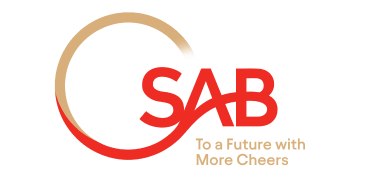SOUTH AFRICA JUST CANNOT AFFORD ANOTHER ALCOHOL BAN
Zoleka Lisa: Vice President of Corporate Affairs SA
The alcohol industry has lost over R36bn in revenue and over 200 000 jobs are at risk as a result of the three alcohol bans according to research conducted by FTI Consulting’s Economic Research Unit. Another alcohol ban will damage the entire industry for the long-term at a time when the country needs economic recovery the most.
In addition to the near catastrophic effects of the alcohol bans on the entire value chain, the above inflation increases to excise tax earlier this year has added further strain to the alcohol industry, increasing risks to jobs and businesses in the value chain. The tax adjustments have not taken into consideration a significant increase in the size and efficiency of the illicit market that has grown during the sales bans.
Here is what the research data shows about the economy-wide impact (i.e. the impact on the alcohol industry, its immediate suppliers, and the wider economy) of an outright ban on alcohol sales:
Source: FTI Consulting Economic Research Unit
HOW DOES THIS AFFECT THE AVERAGE SOUTH AFRICAN?
Earlier bans saw almost 200 000 jobs being put at risk across the entire industry value chain resulting in a possible additional 100 000 people slipping into poverty. Another ban will serve only to exacerbate the situation. This is not a good outcome by any measure for South Africa, which is already straining under 30,8% unemployment rate according to the a recent report by Stats SA.
SAB reported in its most recent financial results that it lost 30% of its annual production in 2020 and over this reporting period paused R5 billion in capex investments due to the uncertain regulatory and policy environment. This represents a blow to the country’s much-needed investment drive to kick-start an economy in distress. But the impact doesn’t stop there.
During the last ban, SAB was unable renew the contracts of 550 workers due to reduced production levels, as it navigated the unintended consequences of the prohibition. The lack of trade coupled with reduced storage capacity, lead to a slowing down of production, along with the uncertainty of the duration of the alcohol ban. SAB has since re-instated 378 contracts post the 3rd ban lifting and all salaried employees took a pay cut of 10% over an 18 month period.
Furthermore, the legal alcohol industry accounts for 85% of the glass packaging industry’s sales – a sector which suffered losses of R1.5 billion during the first alcohol ban alone.
The industry and the country simply cannot afford to lose any more jobs. The economic impact has been and continues to be catastrophic. It will take the industry – and the economy – years to recover from the effects of the previous three bans. Every day that a ban is imposed on the industry means that the road to recovery gets longer and harder.
At SAB, we are fully committed to being active participants in driving a solution that has everyone’s best interest at heart, but we must have policy stability and certainty from government. Without this stability and collaboration with government, any solution agreed to now will not get this industry back on track as a key economic stimulator.
We have respectfully asked government to engage with the industry and all social partners in an attempt to achieve greater responsibility in decision making as we continue to navigate the pandemic. This has to be a truly collaborative effort on all fronts so that we can all work together as partners in our fight against the pandemic. SAB remains committed to supporting the nation’s fight and we are determined to play our part in ensuring that we continue to contribute positively to our country’s economic recovery and stability.
We strongly believe that a more balanced approach will protect both lives and livelihoods in the long run.

